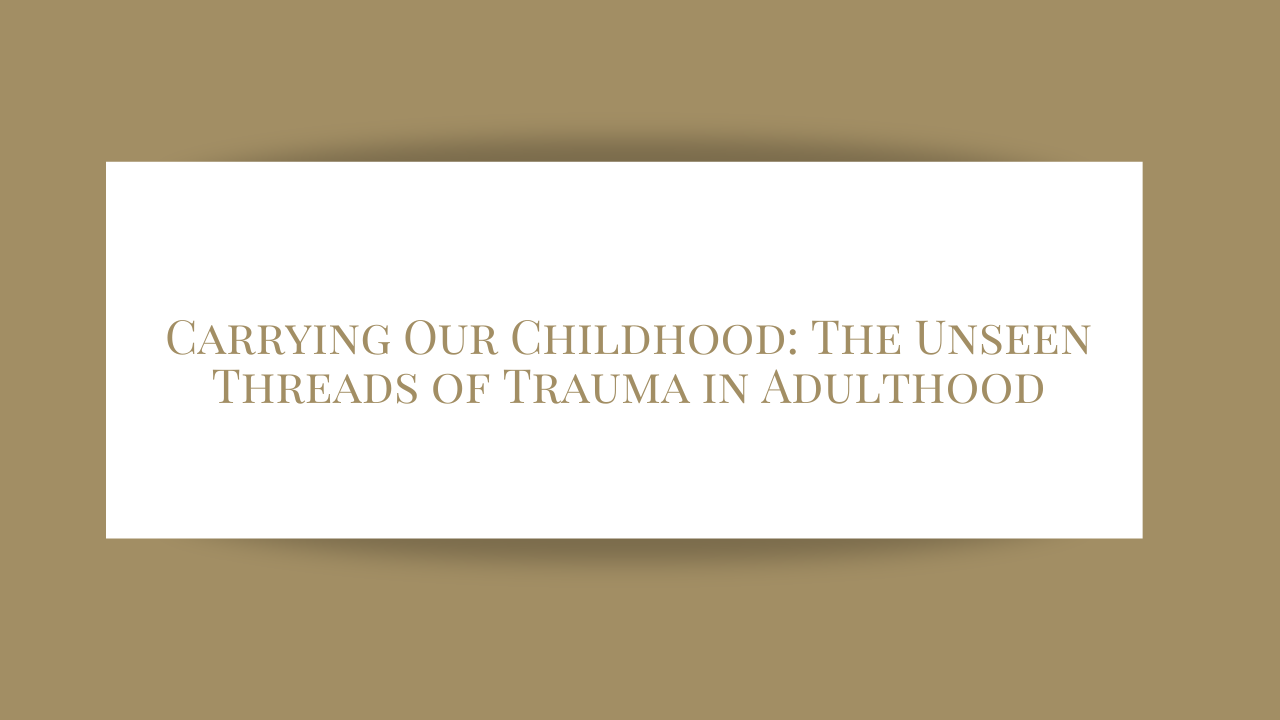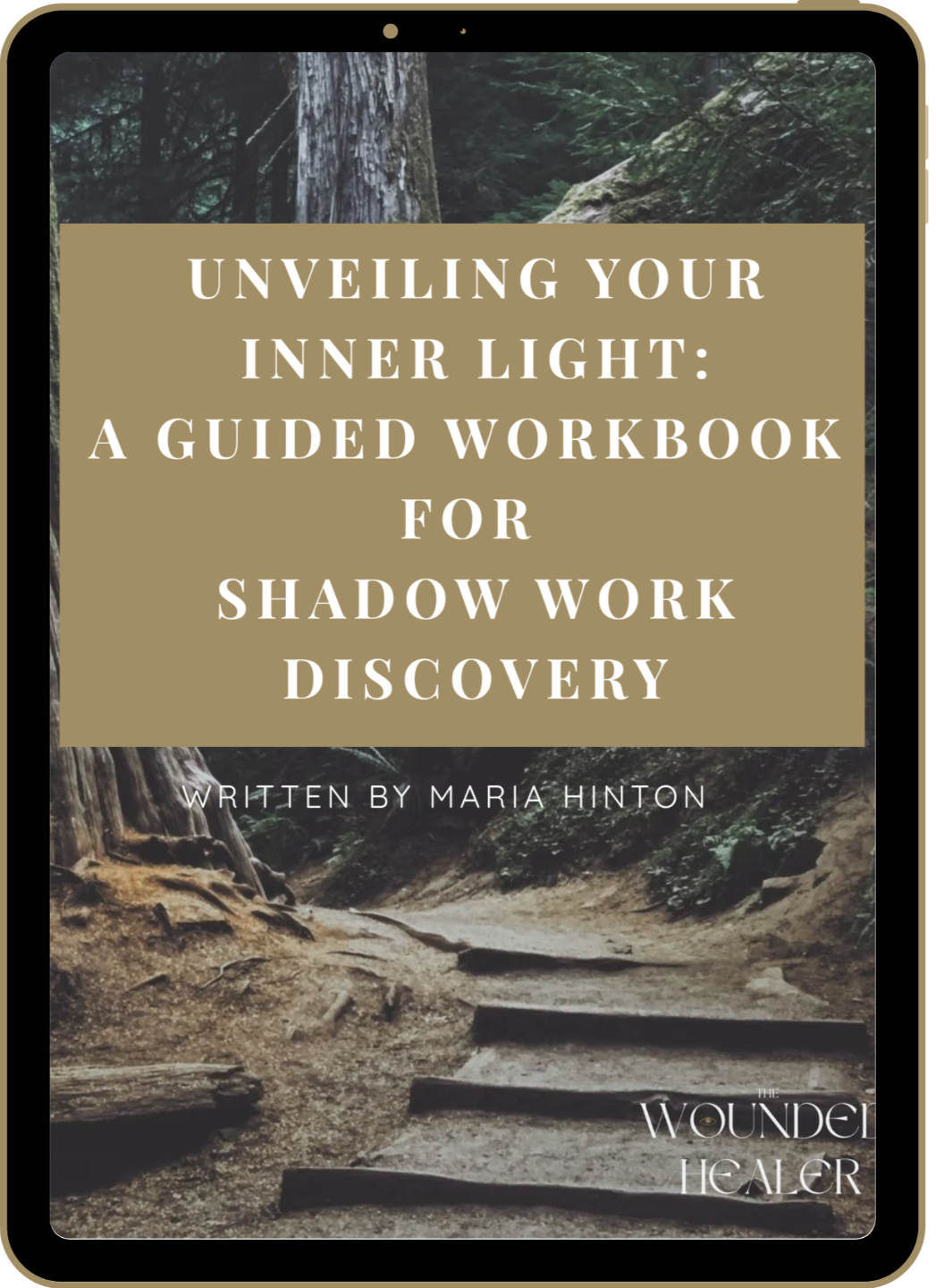Carrying Our Childhood: The Unseen Threads of Trauma in Adulthood
Mar 13, 2025
Carrying Our Childhood: The Unseen Threads of Trauma in Adulthood
As we navigate through life, we often find ourselves unconsciously tethered to the experiences of our childhood. The invisible threads of trauma can shape our behaviours, relationships, and even our perception of self. Understanding how these early experiences influence us as adults is crucial for healing and growth.
The Weight of Unresolved Pain
Childhood trauma, whether it stems from neglect, abuse, or loss, leaves an indelible mark on our psyche. For many, these experiences create a lens through which we view the world—a lens that may distort our self-worth and influence our interactions. Imagine a woman who, as a child, faced constant criticism from a parent. As an adult, she may struggle with perfectionism, feeling that no achievement is ever good enough. This relentless pursuit of perfection is often a shield against the fear of inadequacy rooted in those early experiences.
Relationships: The Echoes of the Past
Our childhood traumas don’t just affect how we view ourselves; they also reverberate through our relationships. Consider a person who grew up in a chaotic household, where emotional expression was stifled. In adulthood, they might find it difficult to communicate their feelings, leading to misunderstandings and isolation in their relationships. The fear of vulnerability can create barriers, making it hard to connect authentically with others.
Reactivity and Triggers
Many adults carry the burden of unresolved childhood trauma in the form of heightened reactivity. For example, a woman who experienced bullying in her formative years may find herself overly sensitive to criticism in her workplace. A seemingly innocent comment from a colleague can trigger a flood of emotions, pulling her back into that childhood pain. Recognizing these triggers is the first step in breaking the cycle and reclaiming our narrative.
The Journey Toward Healing
Acknowledging the impact of childhood trauma is not about assigning blame; it’s about fostering understanding and compassion for ourselves. It takes courage to face the shadows of our past, but doing so allows us to integrate those experiences into our story rather than letting them dictate our lives.
Here are a few steps to begin this journey of healing:
1. Self-Reflection: Create a safe space for introspection. Journaling about your childhood experiences can help bring to light the patterns that affect your present.
2. Mindful Awareness: Practice mindfulness to recognize when past traumas are influencing your reactions in the moment. This awareness can empower you to respond rather than react.
3. Seek Support: Consider working with a therapist or support group that specializes in trauma. Sharing your story can be a powerful catalyst for healing.
4. Embrace Vulnerability: Allow yourself to be vulnerable with trusted friends or family members. This act of sharing can not only lighten your load but also strengthen your connections.
Final Thoughts
Final Thoughts
As we unpack the trauma we carry from childhood, let’s remember that healing is a journey, not a destination. By acknowledging the influence of our past, we can begin to rewrite our narratives and embrace the fullness of who we are. Together, let’s create a community where we can share our stories, heal our wounds, and emerge stronger—transforming our pain into a source of resilience and connection.
If you’re ready to take the next step in navigating your healing journey, we invite you to join our programs designed specifically for women like you. Our workshops and support groups provide a safe space for exploration, connection, and growth. Together, we can empower you to face your past, embrace your vulnerability, and cultivate a more authentic life. Let’s walk this path of healing together—because you don’t have to do it alone. Visit our course page to learn more and take the first step toward reclaiming your narrative today.







